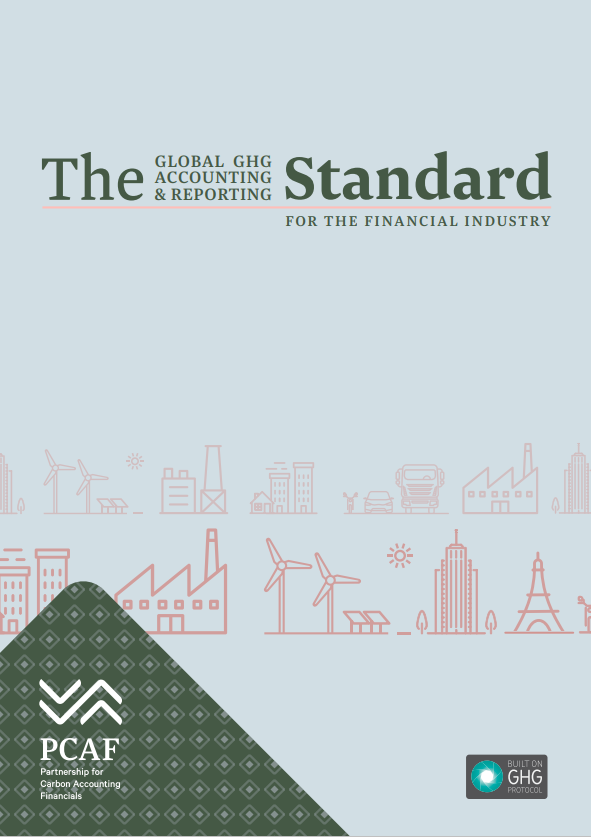
The Global GHG Accounting and Reporting Standard for the Financial Industry
The Partnership for Carbon Accounting Financials (PCAF) developed the Global GHG Accounting and Reporting Standard for the Financial Industry as a response to industry demand for a global, standardized approach to measure and report financed emissions. Written by a diverse, global team of financial institutions for financial institutions, the Standard combines deep industry insight with the rigor of the GHG Protocol, the supplier of the world's most widely used greenhouse gas accounting standards.
The Standard has been reviewed by the GHG Protocol and is in conformance with the requirements set forth in the Corporate Value Chain (Scope 3) Accounting and Reporting Standard, for Category 15 investment activities.
For Guidance on how financial institutions can assess the climate impact from investing and lending activities (the Portfolio Carbon Initiative) please visit the archive.
About the PCAF Standard
The Global GHG Accounting and Reporting Standard for the Financial Industry provides detailed methodological guidance for asset classes. Widely tested by banks and investors, these methods assist in the measurement and disclosure of GHG emissions associated with six asset classes: listed equity and corporate bonds, business loans and unlisted equity, project finance, commercial real estate, mortgages and motor vehicle loans. Future editions of the Standard will expand this coverage, building on and improving its existing methodologies.
Using this Standard equips financial institutions with harmonized, robust methods to measure financed emissions, a metric that enables them to:
- Assess climate-related risks in line with the Task Force on Climate-related Financial Disclosures (TCFD).
- Set science-based targets (SBTs) using the sectoral decarbonization approach developed by the Science Based Targets initiative.
- Report to stakeholders with the Carbon Disclosure Project (CDP).
- Inform climate strategies and actions to develop innovative financial products that support the transition toward a net-zero emissions economy.
About PCAF
The Partnership for Carbon Accounting Financials (PCAF) is an industry-led initiative to enable financial institutions to consistently measure and disclose the GHG emissions financed by their loans and investments. These emissions are also called financed emissions, or portfolio climate impact. Currently, more than 100 banks and investors have subscribed to the PCAF initiative.
PCAF was created in 2015 by Dutch financial institutions. It extended to North America in 2018 and scaled up globally in 2019. Its two objectives are to develop the Global GHG Accounting and Reporting Standard for the Financial Industry, which it achieved in November of 2020, and to increase the number of financial institutions that use the Standard to measure and disclose their financed emissions to over 250 institutions worldwide by 2022.

